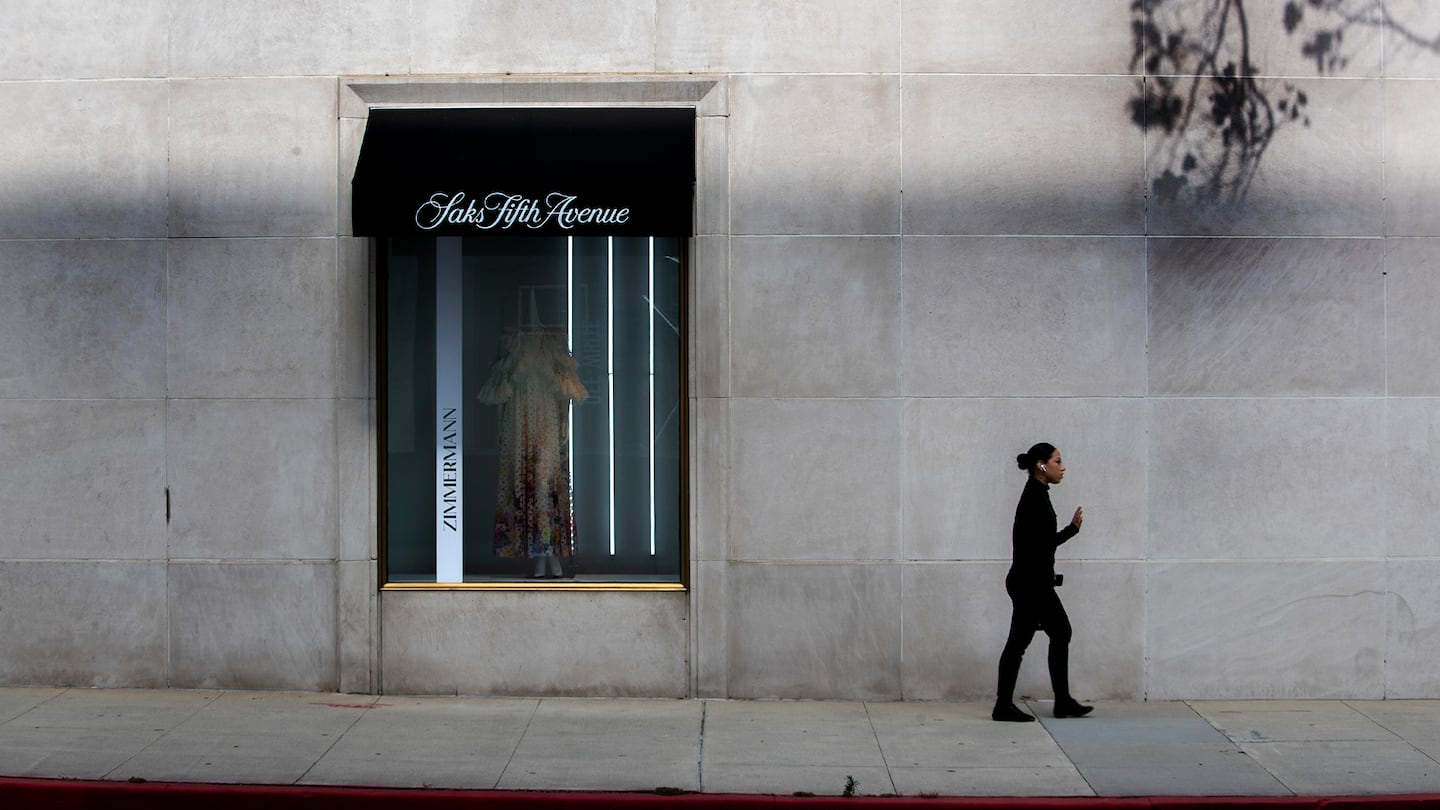
The Business of Fashion
Agenda-setting intelligence, analysis and advice for the global fashion community.

Agenda-setting intelligence, analysis and advice for the global fashion community.

NEW YORK – Saks Fifth Avenue owner Hudson’s Bay Company has raised $340 million to help fund its retail operations.
The group announced the fresh funding, which was raised through a series of real estate transactions, on Monday following days of spreading reports that key vendors were suspending shipments to the luxury department store chain over late payments.
Multiple vendors confirmed to BoF that Saks has been withholding payment, leading brands to reduce the volume of the products they ship to the department store or stop shipping merchandise altogether, as they were unsure if they would ultimately be paid.
“Eventually we were paid but we were chasing, chasing and chasing,” said one brand executive at an American luxury label.
ADVERTISEMENT
The sources spoke to BoF after the publication of a blind item on Estée Laundry, a widely-followed social media account, claiming cosmetics giant Estée Lauder Companies Inc. had suspended shipments on credit to Saks during the key holiday shopping season. Estée Lauder declined to comment.
Payment troubles with Saks began in the spring, multiple vendors said. The retailer eventually paid some of the brands, but in delayed increments.
Meanwhile, CIT and Merchant, two factoring firms that assist brands with financing and collections for wholesale orders, have pulled back on approving shipments to Saks, according to several sources familiar with the matter. This means while brands can still choose to ship products to Saks, but that inventory will not be protected financially by CIT or Merchant, signalling that they’ve assessed Saks to be a credit risk.
Saks said it does not have a liquidity issue.
“As we carefully manage our business against the industry-wide softness in the US luxury market, we are confident in our ability to continue meeting all of our financial obligations,” Saks said in an emailed statement Monday. “Saks has been on record this year that as we anticipated softening demand among US luxury consumers, we proactively and strategically reduced inventory. We also reduced the number of brands we offer.”
Still, the vendors’ allegations have sparked a confidence crisis in the high-end retailer, as the late payments come on top of a broader slowdown in the US luxury market. The CEO of one fashion company, who spoke on condition of anonymity, said the company had cut shipments to Saks by 30 percent since September due to the retailer’s inconsistencies, even as the brand eventually caught up on payments.
Saks’ e-commerce segment saw an 8 percent dip year-over-year in gross merchandise value, a measure of sales, in the quarter ending April 29, according to a letter to vendors written by Saks CEO Marc Metrick, as reported by Women’s Wear Daily in June. GMV across Saks stores fell 15 percent in the same period.
Hudson’s Bay Company flagged in its announcement Monday that the firm owns $7 billion worth of real estate across North America. The news could help to dispel concerns of financial distress at its flagship retailer.
ADVERTISEMENT
“This valuable asset base and the incremental liquidity it generates strengthens our operating businesses as we focus on sound fiscal management and strategic growth initiatives,” Ian Putnam, President and CEO of HBC Properties & Investments, said in the statement.
Late or sporadic payments are not uncommon in the world of wholesale, with smaller designers often bearing the brunt of cash flow challenges while retailers prioritise bills from larger vendors. During and after the pandemic, a number of multi-brand retailers struggled to pay their brand partners.
Saks, in theory, should be well-capitalised from its e-commerce spinoff in 2021, for which Hudson’s Bay Company raised $500 million to create a separate entity for Saks.com. Its 40 brick-and-mortar stores remained under the HBC umbrella and known as SFA. In this set-up, Saks.com handles marketing and merchandising.
In the following months, Metrick told vendors the arrangement was working: online sales rose 80 percent above 2019 levels while same store sales increased by 29 percent in the same period.
It was reported later that year that Saks.com was eyeing an initial public offering at a valuation of $6 billion — triple its valuation prior to the spinoff. The news prompted activist investors to urge other retailers including Macy’s to consider a similar online-offline spin-off in a bid to gain a higher stock value. The IPO has not occurred.
In August, the New York Post reported Hudson’s Bay was in talks to acquire Neiman Marcus Group and merge the chain with Saks Fifth Avenue for an estimated $2 billion.
While small fashion labels have little recourse when it comes to collecting their bills, there are tactics they can use to build leverage — or at least mitigate losses.
Creative experiences and a less-standardised approach to operations and design have helped iconic stores like Selfridges, Liberty and Le Bon Marché resist multi-brand retail’s decline.
After a year of dismal sales growth, closures and bankruptcies, the multi-brand retailers still standing continue to face an uphill battle. Where’s the hope?

Cathaleen Chen is Retail Correspondent at The Business of Fashion. She is based in New York and drives BoF’s coverage of the retail and direct-to-consumer sectors.
Designer brands including Gucci and Anya Hindmarch have been left millions of pounds out of pocket and some customers will not get refunds after the online fashion site collapsed owing more than £210m last month.
Antitrust enforcers said Tapestry’s acquisition of Capri would raise prices on handbags and accessories in the affordable luxury sector, harming consumers.
As a push to maximise sales of its popular Samba model starts to weigh on its desirability, the German sportswear giant is betting on other retro sneaker styles to tap surging demand for the 1980s ‘Terrace’ look. But fashion cycles come and go, cautions Andrea Felsted.
The rental platform saw its stock soar last week after predicting it would hit a key profitability metric this year. A new marketing push and more robust inventory are the key to unlocking elusive growth, CEO Jenn Hyman tells BoF.